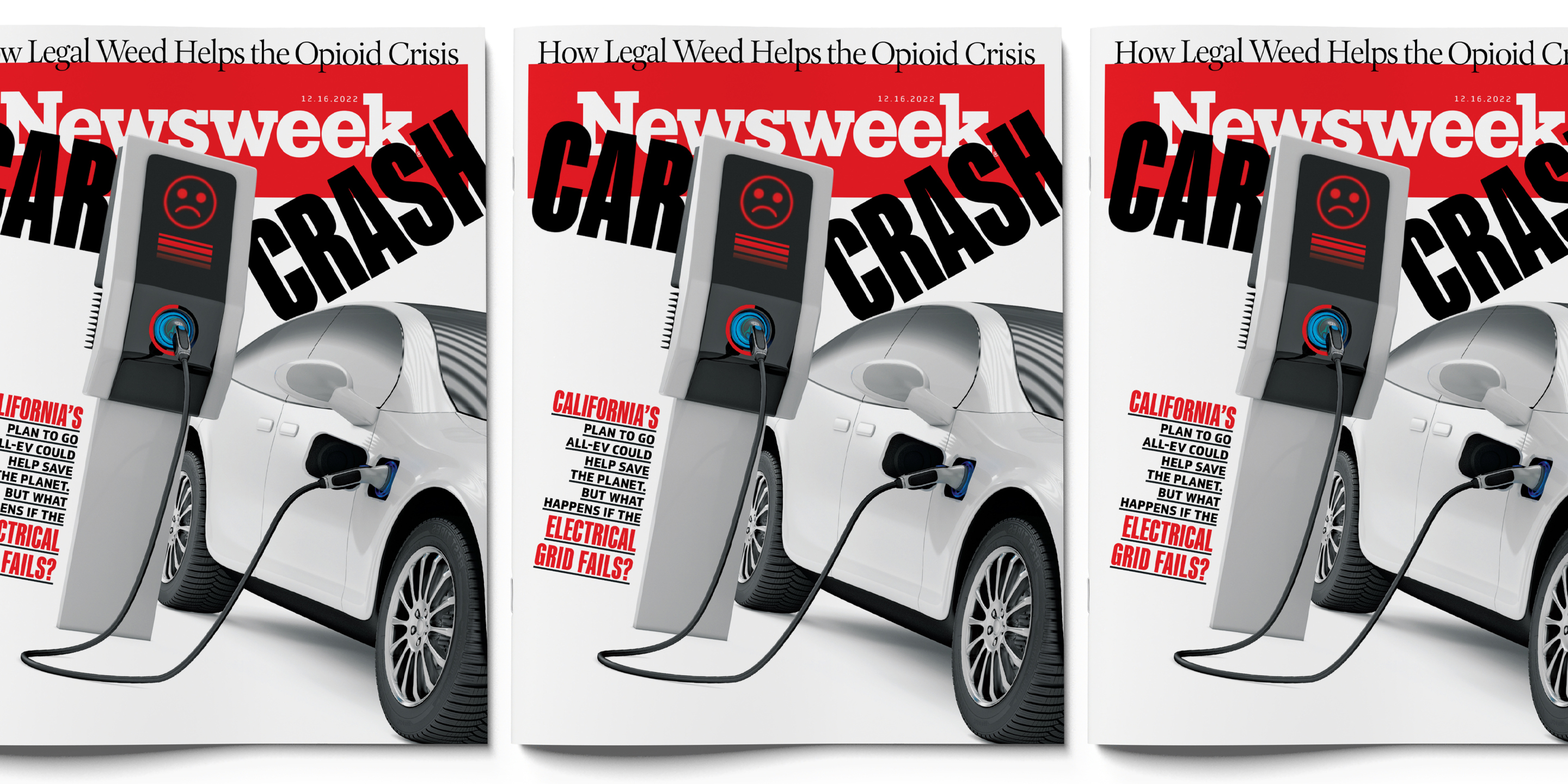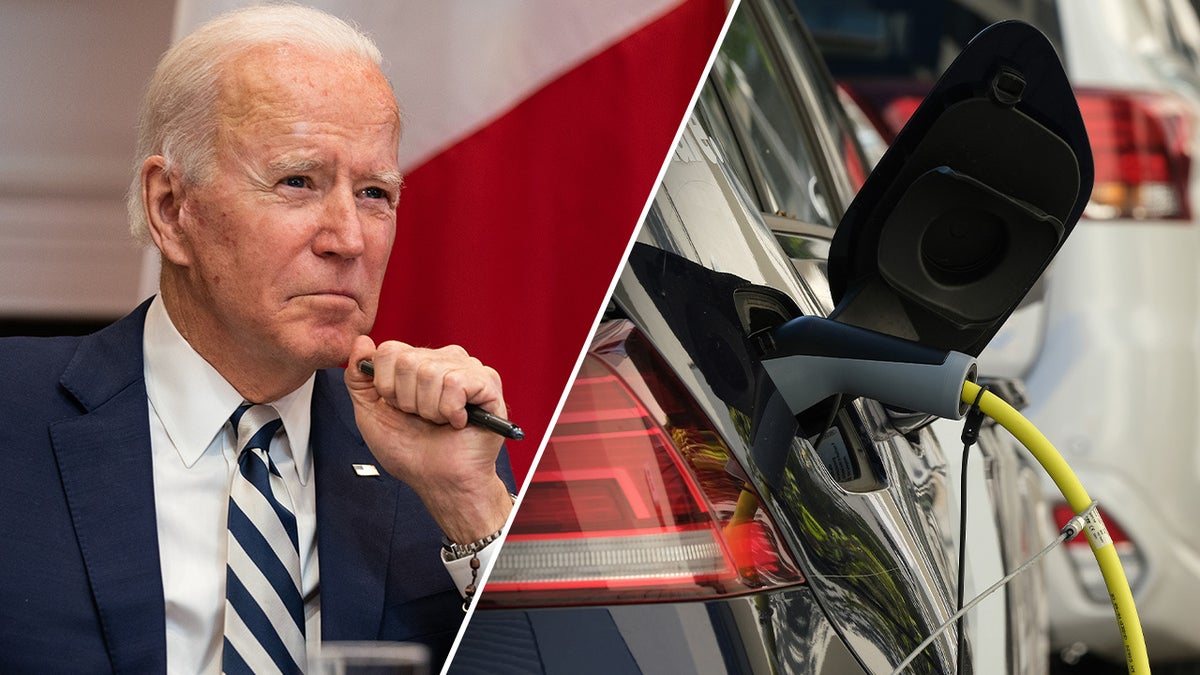EV Mandate Opposition Intensifies: Car Dealers Push Back

Table of Contents
Economic Concerns Fueling Dealer Resistance
The economic impact of EV mandates on car dealerships is a major source of contention. Dealerships face substantial financial burdens adapting to this new landscape, raising serious questions about their long-term viability. These economic concerns are multifaceted and include:
-
High Upfront Investment: Transitioning to EV sales necessitates significant investment in charging infrastructure. Dealerships must install and maintain charging stations, representing a considerable capital expenditure that many smaller dealerships may struggle to afford. Furthermore, specialized training for EV mechanics is required, adding further strain on already tight budgets.
-
Uncertainty Surrounding Consumer Demand: While EV sales are growing, consumer demand varies significantly across geographical regions. Dealerships in areas with limited EV infrastructure or lower consumer awareness of EV benefits face higher risks of unsold inventory and reduced profitability. This unpredictability makes it challenging to manage inventory effectively and allocate resources wisely.
-
Inventory Management Challenges: Supply chain disruptions continue to impact the automotive industry, particularly affecting the availability of EV components. Managing EV inventory is further complicated by fluctuating consumer preferences and the need to cater to a diverse range of electric vehicle models and features.
-
Lower Profit Margins: Currently, profit margins on EVs tend to be lower compared to internal combustion engine (ICE) vehicles. This difference, combined with the substantial upfront investments required, significantly impacts dealership profitability and poses a long-term threat to their sustainability.
Challenges in EV Sales and Consumer Adoption
Beyond the economic hurdles, dealerships face significant challenges in promoting and selling EVs. Successfully navigating the transition requires overcoming several obstacles related to consumer adoption:
-
Range Anxiety and Charging Infrastructure: Consumer hesitancy towards EVs is often rooted in concerns about range anxiety and the availability of charging infrastructure. Addressing these concerns through comprehensive public education campaigns and the expansion of charging networks is paramount.
-
Educating Consumers: Many potential EV buyers lack a comprehensive understanding of electric vehicles and their benefits. Dealerships play a critical role in educating consumers about EV features, performance, and maintenance, overcoming existing misconceptions.
-
Affordability and Financing: The higher initial cost of EVs compared to ICE vehicles is a major barrier to entry for many consumers. Dealerships need to find innovative financing options and highlight government incentives and subsidies to improve EV affordability.
-
Public Perception and Sales Training: Overcoming negative public perceptions about EVs, such as long charging times or limited range, requires targeted sales training to equip dealership staff to effectively address consumer concerns and showcase the advantages of electric vehicles.
The Role of Government Support and Infrastructure
Government intervention and strategic infrastructure development are vital in facilitating a successful transition to electric vehicles. The effectiveness of current policies and the adequacy of infrastructure play a pivotal role:
-
Government Incentives and Subsidies: While government incentives, such as tax credits and subsidies, exist in many regions, their effectiveness in driving EV adoption varies. A review of these incentives and potential adjustments is needed to maximize their impact.
-
Charging Station Investment: The widespread deployment of reliable and accessible charging stations is crucial for overcoming range anxiety and encouraging EV adoption. Investment in public and private charging infrastructure needs to be significantly expanded.
-
Grid Modernization: The existing electricity grid may not be adequately equipped to handle the increased demand from a large-scale EV adoption. Investing in grid modernization is essential to prevent power outages and ensure grid stability.
-
Consistent Regulatory Frameworks: Clear and consistent regulatory frameworks are needed to create a predictable and stable environment for the growth of the EV market. This includes streamlining permitting processes for charging station installations and establishing standardized safety and performance requirements for EVs.
Potential Solutions and Collaboration
To alleviate the concerns of car dealers and ensure a smooth transition to EVs, a collaborative approach is essential. This includes:
-
Phased Approach to Mandates: Implementing EV mandates gradually, rather than abruptly, would provide dealerships with more time to adapt to the changing market conditions and invest in the necessary infrastructure and training.
-
Government-Dealer Partnerships: Strong partnerships between government agencies and car dealerships can foster open communication, facilitate knowledge sharing, and develop effective strategies to overcome the challenges involved in the EV transition.
-
Comprehensive Consumer Education Campaigns: Joint government and industry-led campaigns can help raise consumer awareness of EVs, address misconceptions, and highlight the benefits of electric vehicle adoption.
-
Robust Training Programs: Government funding and industry collaboration could support comprehensive training programs for dealership staff, equipping them with the skills and knowledge needed to effectively sell and service electric vehicles.
Conclusion
The opposition to EV mandates from car dealers reflects legitimate economic and logistical concerns. These concerns, including high upfront investment costs, uncertainty surrounding consumer demand, and lower profit margins, cannot be ignored. The successful transition to electric vehicles requires a balanced approach that acknowledges and addresses these challenges while continuing to promote sustainable transportation. Finding a compromise through collaboration between the government, car dealerships, and other stakeholders is crucial. Let's find a collaborative path forward to navigate the challenges of the EV mandate and ensure a healthy future for the automotive industry.

Featured Posts
-
 Renewed Pressure Car Dealers Ongoing Battle Against Ev Mandates
Apr 27, 2025
Renewed Pressure Car Dealers Ongoing Battle Against Ev Mandates
Apr 27, 2025 -
 February 20 2025 Ideas For A Happy Day
Apr 27, 2025
February 20 2025 Ideas For A Happy Day
Apr 27, 2025 -
 Trump Forecasts Imminent Trade Deals A 3 4 Week Timeline
Apr 27, 2025
Trump Forecasts Imminent Trade Deals A 3 4 Week Timeline
Apr 27, 2025 -
 Your February 16 2025 Open Thread
Apr 27, 2025
Your February 16 2025 Open Thread
Apr 27, 2025 -
 E Bay And Section 230 A Judges Ruling On Banned Chemical Listings
Apr 27, 2025
E Bay And Section 230 A Judges Ruling On Banned Chemical Listings
Apr 27, 2025
Latest Posts
-
 Two Wind Farms And A Pv Plant Approved Pne Groups German Success
Apr 27, 2025
Two Wind Farms And A Pv Plant Approved Pne Groups German Success
Apr 27, 2025 -
 Pne Groups German Renewable Energy Portfolio Expands With New Permits
Apr 27, 2025
Pne Groups German Renewable Energy Portfolio Expands With New Permits
Apr 27, 2025 -
 German Wind And Solar Expansion Pne Group Receives Permits For Three Projects
Apr 27, 2025
German Wind And Solar Expansion Pne Group Receives Permits For Three Projects
Apr 27, 2025 -
 Thueringen Artenvielfalt Der Amphibien Und Reptilien Im Neuen Atlas
Apr 27, 2025
Thueringen Artenvielfalt Der Amphibien Und Reptilien Im Neuen Atlas
Apr 27, 2025 -
 Entdecken Sie Die Herpetofauna Thueringens Der Neue Atlas
Apr 27, 2025
Entdecken Sie Die Herpetofauna Thueringens Der Neue Atlas
Apr 27, 2025
